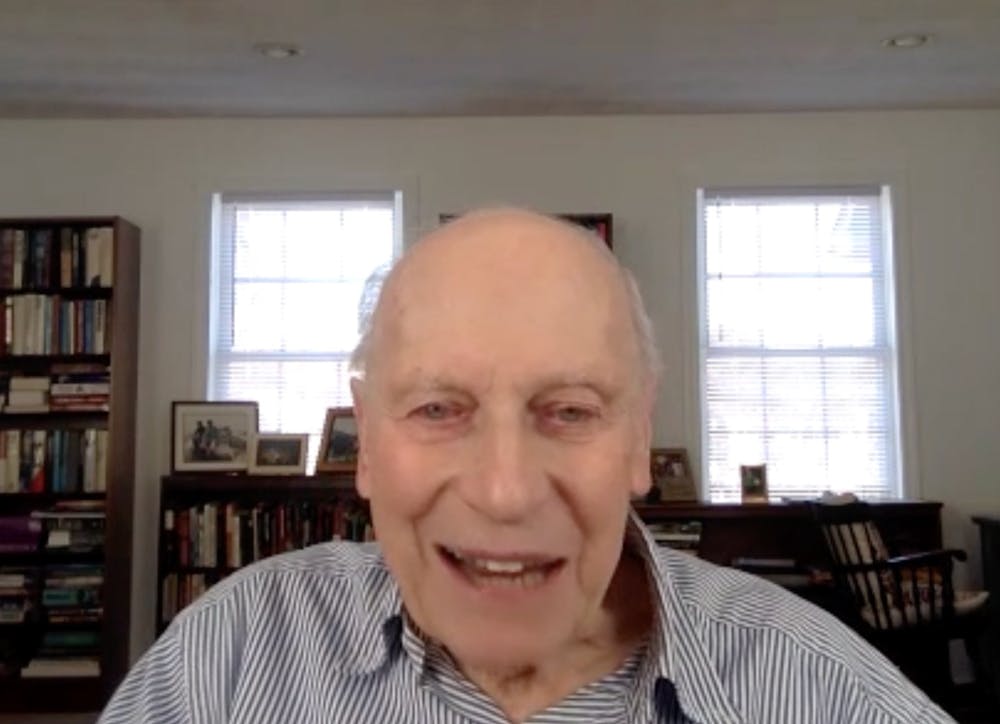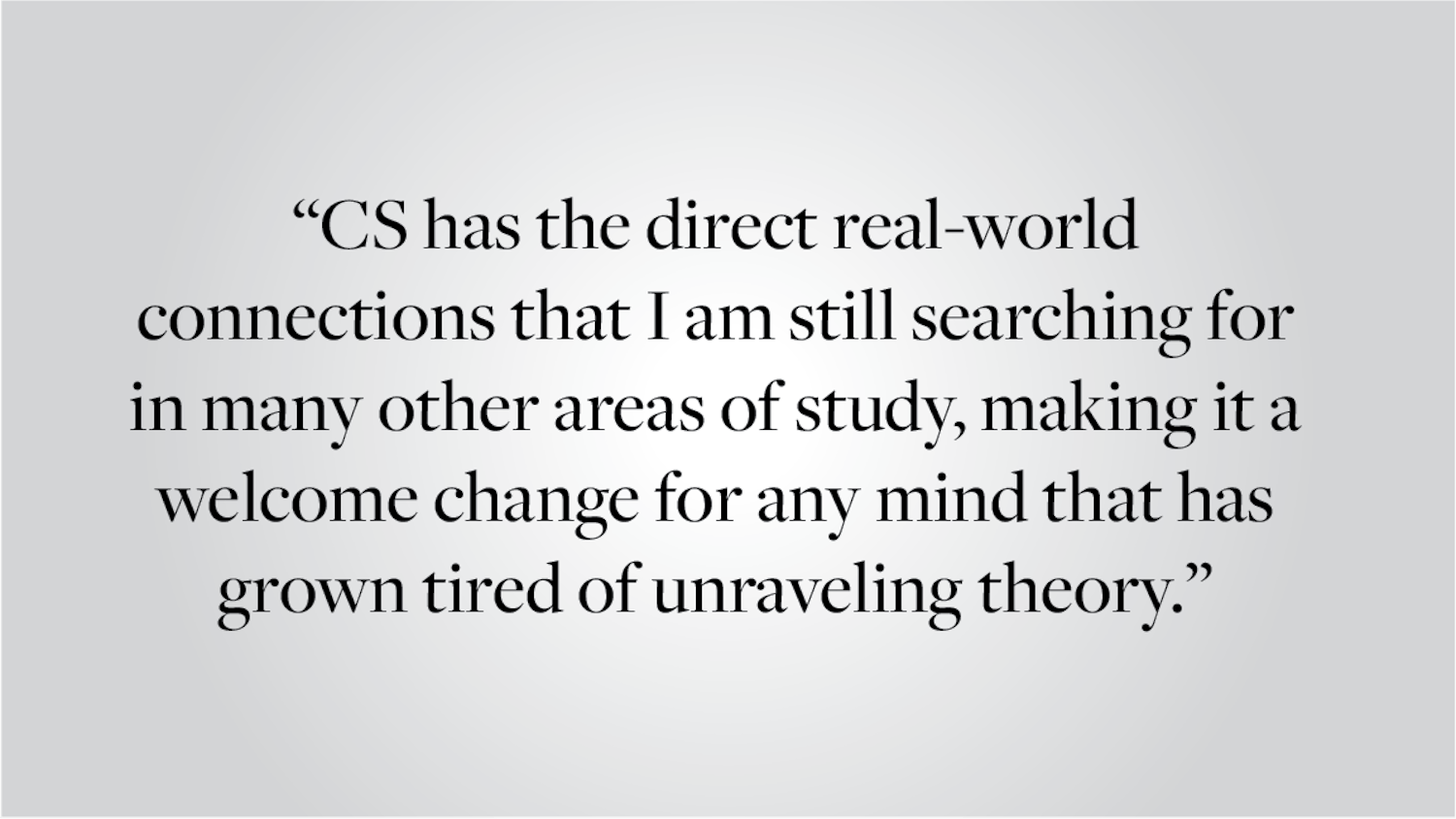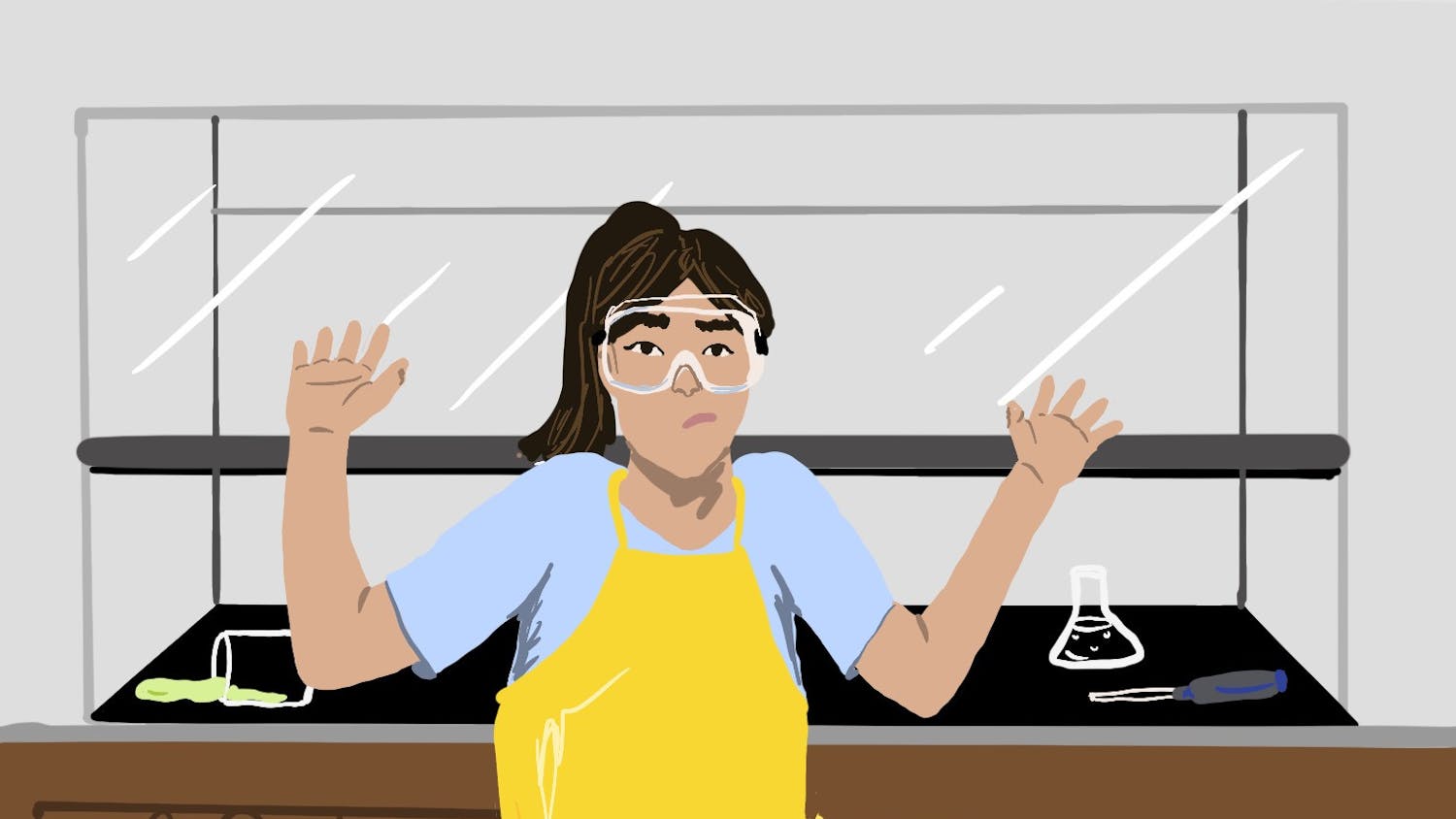In pursuit of a lifelong dream to become a physicist, 70-year-old Manfred Steiner left his home in Providence at around 6:30 a.m., commuting daily to Boston to take physics classes at the Massachusetts Institute of Technology.
But at his age, traveling daily by commuter train and subway had begun to take a physical toll. His wife and family insisted he stay closer to home, so Steiner transferred to the University, where he had 27 years of experience as a faculty member in the department of hematology at the medical school.
At that point already a grandfather, Steiner took one or two classes a semester until he accrued the over 20 required credits necessary for graduate school, and then decided to pursue a Ph.D. in physics. This September, after a roughly 20 year journey toward his most recent degree, Steiner successfully defended his thesis at 89 years old after pushing through multiple medical setbacks.
“It was one of the happiest moments in my life,” he said. “I mean, I was maybe happier getting married, but this was one of my happiest moments.”
Path from Vienna to College Hill
Originally from Vienna, Austria, Steiner developed a passion for physics in high school. After taking physics classes, Steiner thought “‘My God, that’s the right thing for me.’” Although he wanted to pursue physics as a career, his mother and relatives cautioned him against him, convincing him that “medicine, at this time, in Austria, would be a better path,” he said.
Steiner took their advice and came to the United States in 1955 to pursue his postdoctoral degree in internal medicine just after graduating from medical school in Austria.
But Steiner continued incorporating physics into his life in other ways.
“It was always on my mind,” he said, “I love to read physics … Even when I was in medical school… I (snuck) into lectures of the physics department. There was a very well-known physicist there teaching, and I always waited for his lectures.” He also took advantage of the one free class per semester offered to faculty members while teaching at the University of North Carolina to continue learning the basics of physics.
Steiner held a hematology fellowship in Washington, D.C. before being advised to move to either Boston or Salt Lake City to continue his work. Opting for the former, Steiner was then selected for a novel fellowship at Tufts University coordinated by the National Institute of Health through which medical workers were trained in “academic medicine” to transform them into researchers.
As part of the fellowship, Steiner began taking classes at MIT, eventually obtaining his biochemistry Ph.D. in 1967. He then joined the medical faculty at Brown in what would eventually become the medical school, working his way up from assistant professor to overseeing the entire medical directorship of the hematology program with nine or ten of his own fellows until 1994.
As Steiner approached retirement age, an associate recently promoted to chief of hematology at the University of North Carolina invited him to come build up a new research program. While Steiner accepted, after around five years he moved back to Providence with his wife in 2000 in order to stay close to their friends in New England. It was at this point he began taking physics classes at MIT and later at Brown.
Experience of taking classes at Brown, collaborating with classmates
He described his first day of class at the University as very normal with “no big hurdles or problems.”
He was sometimes reluctant to answer questions because “at my age, I don’t want to make a fool out of myself,” he said with a laugh, but he was “really surprised at the acceptance” the students showed him. One student even gave him an entire rough copy of his thesis paper to help Steiner with the computer science portion of his work, eventually leading to Steiner mentioning the student in his acknowledgments of his own thesis, entitled “Corrections to the Geometrical Interpretation of Bosonization.”
Steiner said he would introduce himself to the faculty who taught the class and tell them that despite being “an old student,” he was serious about his education.
Steiner also had an advisor, professor of physics John Bradley Marston, who described Steiner as a “very kind and modest man” who is “serious and dedicated to learning.”
Marston was “skeptical at first” when Steiner approached him about advising but soon “realized he was serious.” He eventually became the first person who told Steiner that he had passed his defense.
While their interactions were surprisingly normal given the unique circumstances, Marston did admit that it sometimes felt strange advising Steiner. “He always addressed me as ‘Professor Marston’ even though I asked him to just call me ‘Brad.’ If you addressed him formally in German, he would be ‘Herr Dr. Dr. Dr. Prof. Steiner!’” Martson wrote in an email to The Herald.
Younger students, Steiner said, “considered him more as a faculty member” and “probably felt afraid to ask” more personal questions because it would intrude on his private life. Still, he fondly recalled working with the students as a lab partner throughout a theoretical physics course and recalled one particular occasion in which his partner said “‘you know, I have a bottle of wine outside, we can have a little drink in between this experiment.’” This interaction was reflective of the “entertaining conversations” he shared with his younger classmates, he said.
Significance of milestone achievement
Having now been both an older student and a faculty member at the University, Steiner said he understood how it felt to receive grades for larger assignments and that he “worried about tests, finals and things like that.” At the same time, Steiner sympathized with professors as a former faculty member himself.
Steiner shared a piece of advice with students: “If you have a dream for your life for what you want to do … try first to follow your dream,” Steiner said. “If it doesn’t work, well, change to something else, but always follow your dream first because later in life, you may regret it.”
“It is possible to follow your dreams even if it takes 89 years,” Steiner said.
Sofia Funk ’24 said she was inspired because “young people often feel a lot of pressure to achieve and succeed before it’s too late … But this is proof that it’s never too late to change paths and learn something new.”
With his physics Ph.D, Steiner plans to work with Marston to publish parts of his thesis that focus on more specific subjects.
In terms of the national and global attention he’s received, Steiner said he has received so much mail from people around the world congratulating him that his wife said he “should get a secretary.” He was “overwhelmed by the attention it drew” after receiving so many messages and invitations to participate in symposiums and motivational speeches, including a TED Talk.
Funk said that Steiner’s story put her own life, and her own future, into new perspective. “Perhaps the thing I’m passionate about now won’t be what I’m passionate about in 10, 20, 30 years,” she said. “If that’s the case, I hope I have the courage to reject complacency and follow my dreams like Dr. Steiner did.”
Jack Tajmajer is a Metro editor who oversees the Beyond Brown beat. He is a Senior from Bethany, Connecticut and Bethlehem, New Hampshire studying Political Science and Economics. His mother operates an alpaca farm and he tried a blueberry for the first time at age 17.





